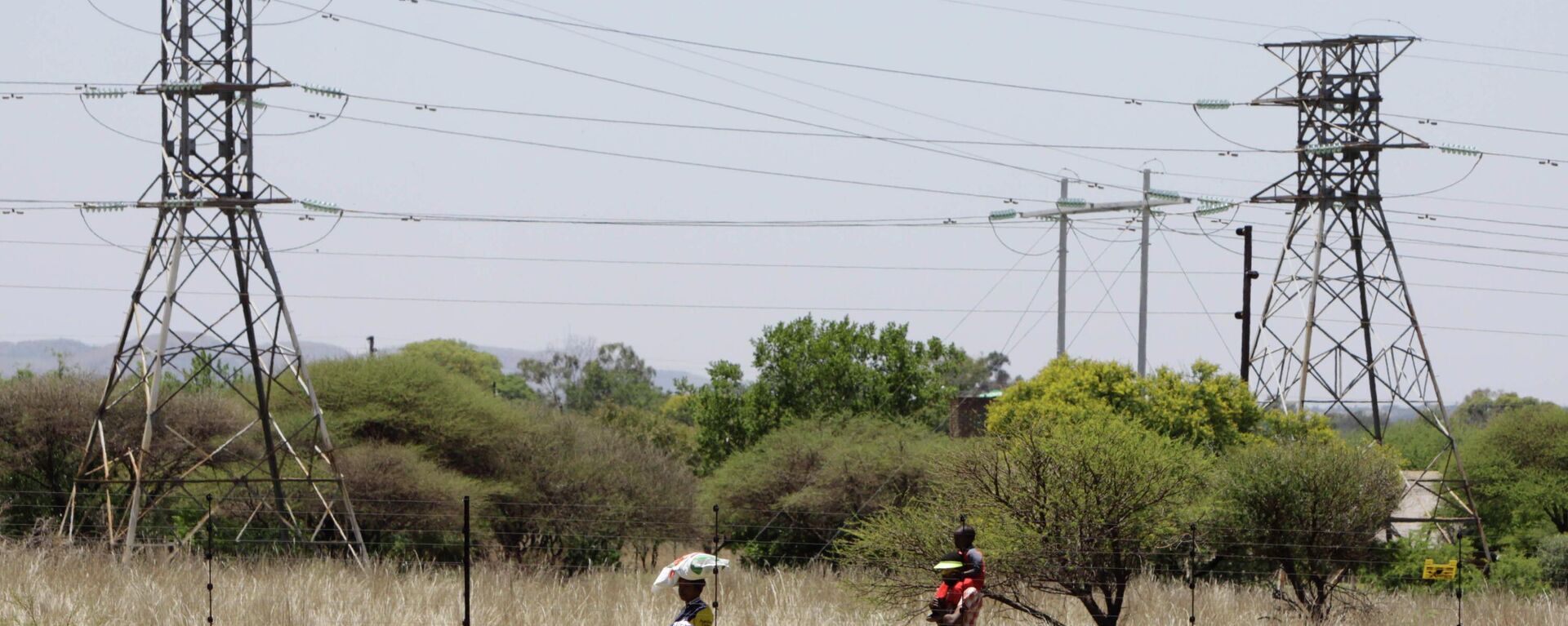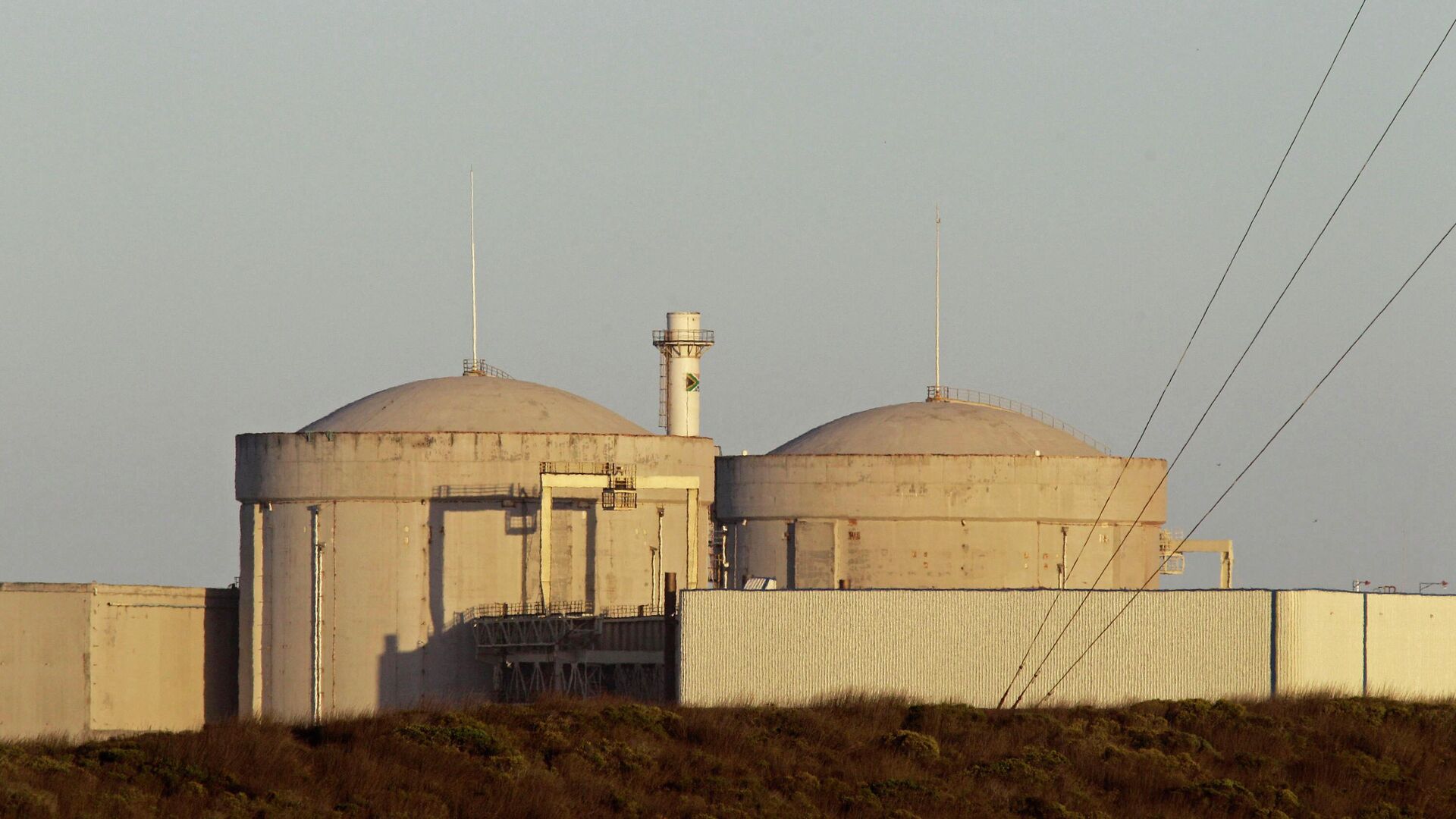https://sputnikglobe.com/20221126/nuclear-power-could-solve-africas-poverty-problem-activist-says-1104726998.html
Nuclear Power Could Solve Africa's Poverty Problem, Activist Says
Nuclear Power Could Solve Africa's Poverty Problem, Activist Says
Sputnik International
Princy Mthombeni, nuclear activist, head and founder of the platform Africa4Nuclear told Sputnik about the advantages of development of nuclear power in Africa.
2022-11-26T13:40+0000
2022-11-26T13:40+0000
2022-11-26T13:48+0000
africa
africa insight
nuclear energy
russia
energy
industry
https://cdn1.img.sputnikglobe.com/img/07e6/0a/14/1102464130_0:87:3000:1775_1920x0_80_0_0_074fe632ad2e8646ac58996ee5489a9d.jpg
A central element of Africa's industrial transformation is gaining energy independence, experts point out. In an interview with Sputnik, Princy Mthombeni, nuclear activist, head and founder of the platform Africa4Nuclear, says that the peaceful atom is key to the continent's industrial development – and, subsequently, solving social and economic problems.The activist notes that hundreds of millions of Africans live without access to electricity and, as a result, have no access to clinical care. Development of the peaceful atom would not only help provide energy to Africans, but also contribute to the modernization of healthcare systems, Mthombeni underlines, giving examples of Zambia and Rwanda that have announced plans to open nuclear research facilities. This could help increase the number of qualified specialists in the nuclear sphere and start the development of nuclear medicine projects, she says, adding that currently, South Africa and Egypt are the only two African countries that have nuclear medicine capabilities.In Egypt, the El Dabaa nuclear plant is currently under construction by the Russian state corporation Rosatom. Recently, Burundi joined those African countries looking to develop nuclear energy, signing a roadmap with Russia for establishing a dialogue in the sphere.According to Mthombeni, African nations that wish to produce nuclear energy turn to Russia because of its leading role in the sector. The activist also mentions that the Russian financial model is "really an accessible one that any country can really be able to get into without fear of being sanctioned when they can no longer afford."Western countries, in their turn, are "pushing the African continent in the wrong direction" in terms of energy sector development, Mthombeni believes. For instance, she notes, South Africa is offered grants to phase out coal energy in favor of renewables, particularly wind and solar, with the West hoping that "all the 54 African nations will follow suit." According to Mthombeni, the immediate abandonment of the South African coal sector, which provides work for some 100,000 people, would mean disregarding the population's interests.Meanwhile, the activist says, European countries such as Germany are postponing their own "green" transition, planning to continue the use of coal energy plants. For this reason, Mthombeni deems the Western energy policy in Africa as "nothing but hypocrisy and anti-development agenda," noting that she does not know an example of a country that "has been able to industrialize using wind and solar, because those are limited energy sources which are weather dependent."An example of a sane European policy that Mthombeni gives is the European Parliament's decision to recognize nuclear energy, a low-carbon energy source, as "green.""So African countries [...] also need to do that – to add nuclear in their green taxonomy so that the financial institutions can start looking into how they can fund nuclear programs without fear," the activist concludes.
https://sputnikglobe.com/20221126/how-to-boost-africas-industrial-development-and-preserve-biodiversity-at-one-and-same-time-1104702712.html
africa
russia
Sputnik International
feedback@sputniknews.com
+74956456601
MIA „Rossiya Segodnya“
2022
News
en_EN
Sputnik International
feedback@sputniknews.com
+74956456601
MIA „Rossiya Segodnya“
Sputnik International
feedback@sputniknews.com
+74956456601
MIA „Rossiya Segodnya“
nuclear power in africa, nuclear energy in africa, energy poverty in africa, is nuclear energy green, rosatom in africa
nuclear power in africa, nuclear energy in africa, energy poverty in africa, is nuclear energy green, rosatom in africa
Nuclear Power Could Solve Africa's Poverty Problem, Activist Says
13:40 GMT 26.11.2022 (Updated: 13:48 GMT 26.11.2022) In November, the International Atomic Energy Agency (IAEA) stated that Ghana, Nigeria, and Kenya could start producing nuclear energy in the next few years and that the majority of African countries would be able to do the same by 2030.
A central element of Africa's industrial transformation is gaining energy independence, experts
point out. In an interview with
Sputnik, Princy Mthombeni, nuclear activist, head and founder of the platform Africa4Nuclear, says that the peaceful atom is key to the continent's industrial development – and, subsequently, solving social and economic problems.
"I believe that industrialization starts – our development starts – with addressing issues of energy poverty," she underlines, adding: "When investors want to come and invest in your country, what they look for first is [...] 'Do you have the guaranteed reliable supply of electricity?.' Then by deploying their nuclear power programs on the African continent we would be able to solve [the energy poverty] issue and therefore lift many people out of poverty."
The activist notes that hundreds of millions of Africans live without access to electricity and, as a result, have no access to clinical care. Development of the peaceful atom would not only help provide energy to Africans, but also contribute to the modernization of healthcare systems, Mthombeni underlines, giving examples of Zambia and Rwanda that have announced plans to open nuclear research facilities. This could help increase the number of qualified specialists in the nuclear sphere and start the development of nuclear medicine projects, she says, adding that currently, South Africa and Egypt are the only two African countries that have nuclear medicine capabilities.
In Egypt, the El Dabaa nuclear plant is currently under construction by the Russian state corporation Rosatom. Recently, Burundi
joined those African countries looking to develop nuclear energy, signing a roadmap with Russia for establishing a dialogue in the sphere.
According to Mthombeni, African nations that wish to produce nuclear energy turn to Russia because of its leading role in the sector. The activist also mentions that the Russian financial model is "really an accessible one that any country can really be able to get into without fear of being sanctioned when they can no longer afford."

26 November 2022, 07:22 GMT
Western countries, in their turn, are "pushing the African continent in the wrong direction" in terms of energy sector development, Mthombeni believes. For instance, she notes, South Africa is offered grants to phase out coal energy in favor of renewables, particularly wind and solar, with the West hoping that "all the 54 African nations will follow suit." According to Mthombeni, the immediate abandonment of the South African coal sector, which
provides work for some 100,000 people, would mean disregarding the population's interests.
Meanwhile, the activist says, European countries such as Germany are postponing their own "green" transition, planning to continue the use of coal energy plants. For this reason, Mthombeni deems the Western energy policy in Africa as "nothing but hypocrisy and anti-development agenda," noting that she does not know an example of a country that "has been able to industrialize using wind and solar, because those are limited energy sources which are weather dependent."
"I do support the transitioning to cleaner energy sources. But it should be done at a pace and scale that the country can afford and not just wipe away the fossil fuels because you believe that they're bad," the activist argued, adding: "Technology and innovation have proven to save [..] lives and therefore, wiping off things that are helping countries to develop, even such as fossil fuels – it doesn't make sense to me."
An example of a sane European policy that Mthombeni gives is the European Parliament's decision to recognize nuclear energy, a
low-carbon energy source, as "green."
"So African countries [...] also need to do that – to add nuclear in their green taxonomy so that the financial institutions can start looking into how they can fund nuclear programs without fear," the activist concludes.



